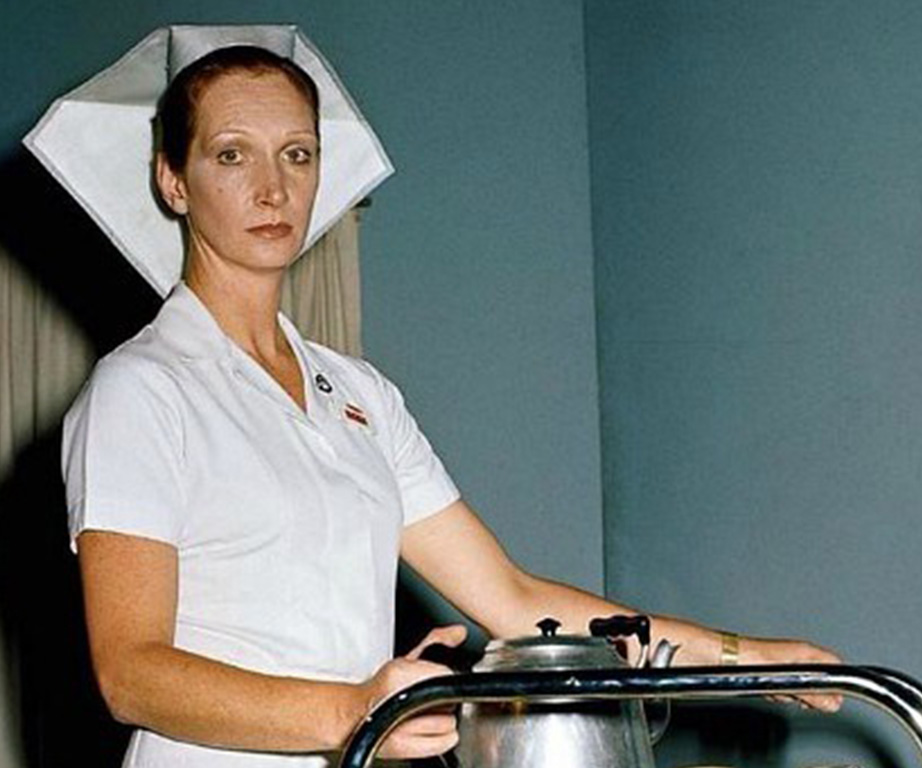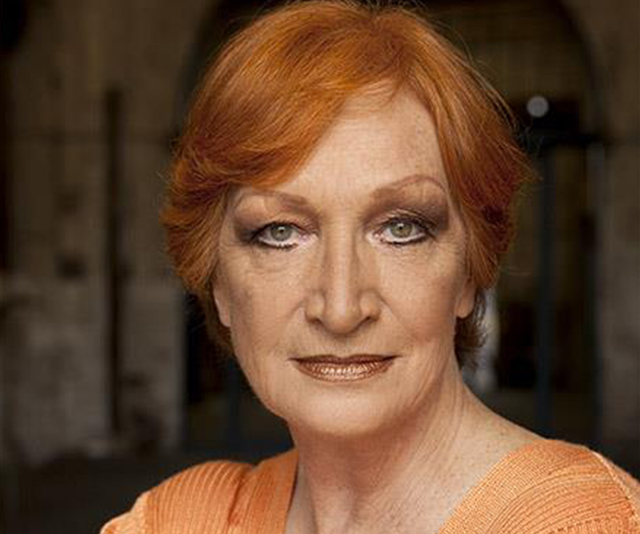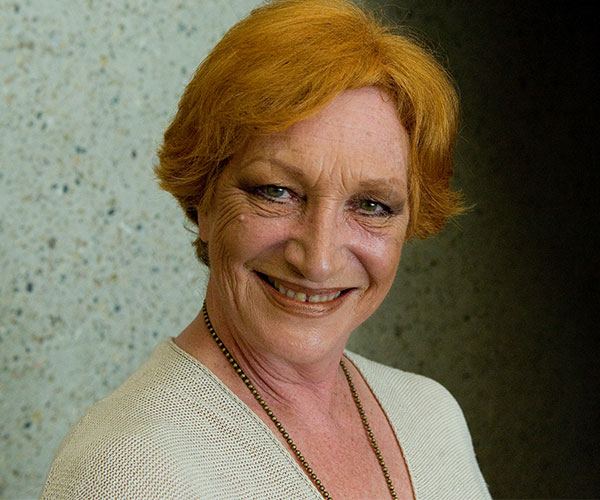Yesterday, Australia was hit with the shocking news that Home And Away actress Cornelia Frances had lost her tragic battle with bladder cancer.
And while we, along with her co-stars over the years, are mourning the loss of the 77-year-old mum-of-one, we couldn’t draw our attention away from the lethal illness that stole Cornelia from us.
Cornelia wasn’t alone in her battle against bladder cancer, with as many as 3,000 Australians impacted by the disease each year.

Cornelia (far right) starred as Morag Bellingham from 1988 to 2017 on Home and Away.
What’s bladder cancer?
According to the Cancer Council Victoria, bladder cancer occurs when the cells in the inner lining of the bladder become abnormal, causing them to grow and, uncontrollably, divide.
It impacts as many as 3,000 Australians each year, and is most common in people 60 years and older. Men are said to be three to four times more likely than women to be diagnosed with the disease.

Cornelia, who starred as Sister Scott in The Young Doctors, passed away after a 14-month battle with the deadly disease.
Bladder cancer symptoms
Bladder cancer sometimes doesn’t show symptoms and is then found in urine tests being done for other reasons. Although, in other cases, there are telling signs:
Blood in urine (this can occur suddenly, but not painfully)
A burning feeling when urinating
The need to urinate more frequently or urgently
Not being able to urinate despite feeling like you need to
Pain while urinating
Note: not everyone who has these symptoms has bladder cancer (you could be experiencing an infection or even kidney or bladder stones). However, if you are showing any of these signs, see your doctor as soon as possible.
How bladder cancer is diagnosed
First up, your GP will need to do some general tests before referring you to a specialist for more tests, including an internal examination, as well as blood and urine tests.
When it comes to finding out whether you have cancer in the bladder, a specialist may conduct an ultrasound, CT or MRI scan, as well as a flexible and then rigid cystoscopy, and a biopsy.
Bladder cancer risk factors
Doctors urge that not only do age and gender impact a person’s likelihood of developing bladder cancer, but there are a range of other factors that can, too, including:
Smoking
Chronic infections and unrelated bladder stones
Long-term catheter use
Diabetes treatment
A family history of bladder cancer
How bladder cancer is treated
Treatments range based on whether the cancer is non-muscle-invasive or muscle-invasive bladder cancer, but those diagnosed with either type may endure surgery, chemotherapy, immunology and radiotherapy treatment.
If you are concerned that you may be showing the first signs of bladder cancer, or would just like to learn more about the condition, consult your trusted GP.

